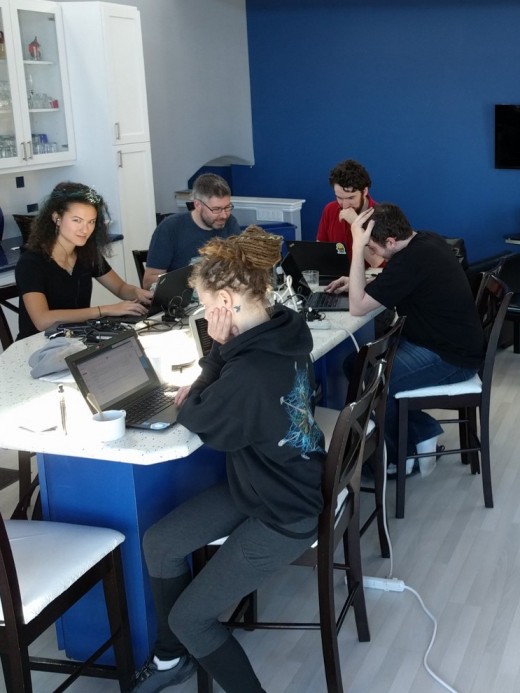Reason America’s Biggest Bank Digs Anonymous Cryptocurrency
Whatever JPMorgan Chase CEO Jamie Dimon implied a month ago, when he called Bitcoin a "fake" he beyond any doubt doesn't appear to see its blockchain in a similar light.
His bank is at the front line of the push to adjust the innovation for use in the monetary business. Considerably all the more amazing, however, is JPMorgan's coordinated effort with the general population behind an advanced money that resembles Bitcoin aside from totally mysterious.
It would be justifiable if Dimon and other bank CEOs saw Bitcoin and its cryptographic money kin as a danger. All things considered, Bitcoin, propelled amid the stature of the Great Recession, demonstrates it's conceivable to utilize programming and a huge number of PCs associated by means of the Internet—rather than a bank—to encourage the distributed trade of cash. The PCs in the system keep up a protected record of each exchange, called a blockchain, and utilize it to forestall falsifying.
Protection is an especially confounded test. As opposed to across the board observation, cryptographic forms of money like Bitcoin and Ethereum are not unknown. Clients are spoken to on people in general record by a series of characters called an address. Somebody who figures out how to associate your personality to your address can see each exchange you've ever constructed.
That model doesn't work for money related establishments, says Amber Baldet, blockchain lead at JPMorgan. In addition to the fact that they are bound by hostile to illegal tax avoidance laws to know precisely who their clients are, yet their clients need to execute privately. Moving from Bitcoin's security model to one in which members are known however their exchanges are private—while keeping up the advantages of a blockchain—is a "nontrivial" try, says Baldet.
Luckily for Baldet's group, this prickly issue is like another that as of now gives off an impression of being comprehended: digital money that is as private as money. In May, JPMorgan declared that it would group with the engineers of Zcash, a year-old digital currency whose Bitcoin-determined programming gives clients the choice to "shield" their exchanges from general visibility. A month ago, the bank uncovered that it had incorporated Zcash's protection innovation into Quorum, its open-source, Ethereum-determined, permissioned blockchain stage.
Zcash depends on a developing cryptographic convention called a zero-information evidence. One of a few methods that make it feasible for cryptographic money clients to conceal their exchanges, zero-learning proofs are creating an enormous measure of fervor in the blockchain world, to a great extent due to the mind-bowing influence they can give a client: the capacity to demonstrate something important to you to another person without revealing any extra data.
On account of Zcash, clients can utilize this strategy to demonstrate that they have adequate assets to make a legitimate exchange. In an endeavor framework like JPMorgan's Quorum, clients could utilize it to do things like demonstrate they are certify financial specialists.
For what reason, would a minor startup made up of crypto-optimists collaborate with America's greatest bank, the exceptionally sort of incorporated specialist that Bitcoin was intended to dodge?
Wilcox and his partners appear to be, to the exclusion of everything else, gave to propelling zero-learning innovation—regardless of whether that be in open blockchain frameworks like Zcash, Bitcoin, and Ethereum or in the private systems that budgetary organizations are building.
That JPMorgan is occupied with a similar front line protection innovation so alluring to digital money geeks isn't astonishing in any way, says Emin Gün Sirer, a PC researcher at Cornell University. Zero-information proofs are not tied in with avoiding the law, he says, but rather about demonstrating things however particular revelation. That guarantees to have a lot of uses on the planet JPMorgan occupies.
Follow us and please Upvote!!
